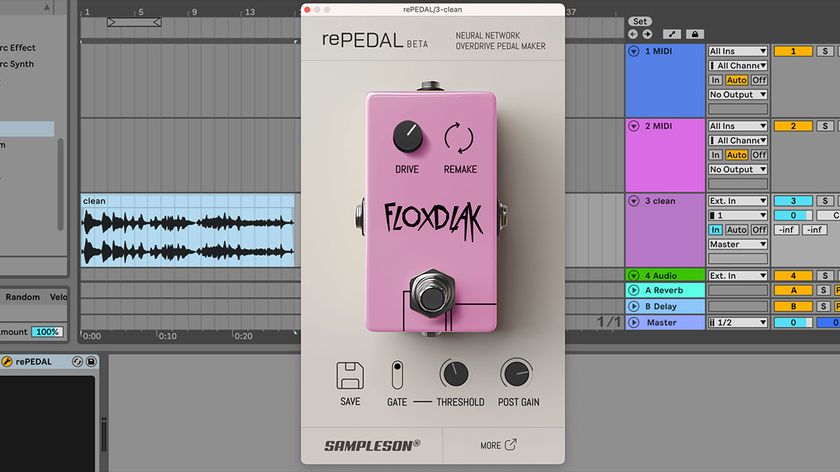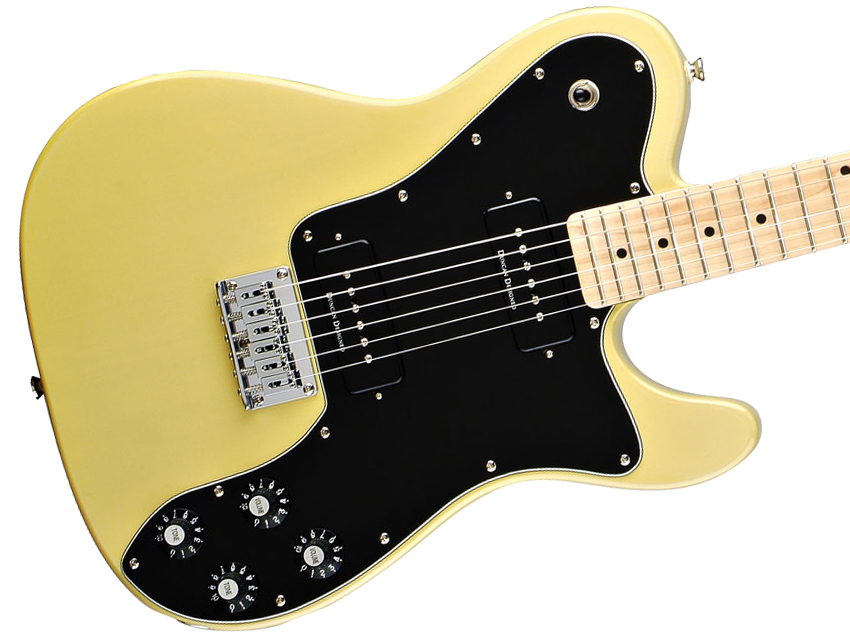MusicRadar Verdict
A great guitar at a very affordable price!
Pros
- +
A genuinely astonishing neck of the highest quality all round.
Cons
- -
P-90s aren't to everyone's taste… unfortunately!
MusicRadar's got your back
Squier has to be one of the very few brands that everyone has played, owned or considered and, unlike another 'sister' brand we could mention, levels of build quality have, for the most part, remained consistently acceptable.
Over the last 18 months, Squier has captured imaginations with the Series 24 and the more metal-influenced guitars of the Showmaster range, yet the most enduring Squier models are always likely to be those steeped in Fender-associated history.
Here we look at a new addition to the Vintage Modified series that shows its roots with pride…
Overview
At first glance, the use of the word 'Custom' here might prove a little confusing. It clearly refers to the 1972 version, made famous by Keith Richards, but it was actually the Telecaster Deluxe, also introduced in 1972, that featured a pair of Fender humbuckers and the unashamed Gibson Les Paul control panel, albeit with a Stratocaster headstock.
The first version of the Custom, released way back in 1959, was a fancier version of the Standard Tele, featuring double edge body binding and a selection of classy finishes.
However, Squier Tele Customs these are and, with a substantial agathis body, thick black finish and big scratchplate, these are very attractive guitars indeed.
The new Custom is loaded with a pair of Squier covered humbuckers that differ slightly from the 'wide range' units fitted to '72 originals both in size and look - one row of six polepieces rather that two offset rows of three - while the Custom II features two Duncan Designed P-90 single-coils.
A familiar combination of three-way toggle sited on the upper horn plus a volume and tone control for each pickup allows for an easily predictable level of control and we're reminded that, in Fender's entire history, never have they come so close to emulating classic features from their Kalamazoo rival as they did with the Tele Deluxe.
Be prepared for a treat when you pick this Tele up, as its neck is simply out of this world, especially when you consider its measly price.
The Custom II has a 'C'-shape as well as there being a genuine flaming to the single piece of neck maple. There's no vintage hue to the neck, which consequently allows the natural honey colour to be attractively evident.
It plays superbly and has been set-up to perfection: Squier has even used the original curly font for the 'Custom' logo. All in all, not much is missing here.
Sounds
It's unlikely that this Tele would be used for heavy rock styles. In general, P-90 pickups have a streamlined appeal and remember that, as they're single-coils, they'll buzz like crazy at ultra-high gains.
We reckon that a more restrained style is best suited to the always beautiful P-90 tone and, for blues, indie and even bed-wetting pop, you could do a great deal worse than the Custom II.
For cleaner styles, the three available settings are similar to positions one, three and five on a Stratocaster, with similar amounts of spank, sparkle and warmth.
Of course, as P-90s have a wider coil the intrinsic tones are more middly than those of a traditional single-coil and, in tandem with the thick agathis body, the Custom II has a tone all of its own.
One thing is undeniable: Squier is going to sell container-loads of these models. The RRP is well below what we'd be prepared to pay and, even though there's a wobbly control here or a splash of sealant there, each is pretty much above criticism.
If more subdued styles are your bag, then the P-90s afforded by the Custom II will answer the prayers of certainly your bank manager, and the neck on our example was just too good to be true.
Guitarist is the longest established UK guitar magazine, offering gear reviews, artist interviews, techniques lessons and loads more, in print, on tablet and on smartphones Digital: http://bit.ly/GuitaristiOS If you love guitars, you'll love Guitarist. Find us in print, on Newsstand for iPad, iPhone and other digital readers

Feed your GAS habit for free with RePedal, an ‘AI guitar pedal maker’ that creates a new distortion stompbox plugin every time you click it

“A nice fusion of synthesizers and epic pop”: Queen drummer Roger Taylor names the best song he ever wrote for the band - and the Queen song he hates!

"Does he love her, does he not love her? People play it at weddings, but it has that strangeness about it…": As it celebrates its 50th anniversary, 10cc's Graham Gouldman and Kevin Godley discuss the making of their classic anti-love song
Most Popular






